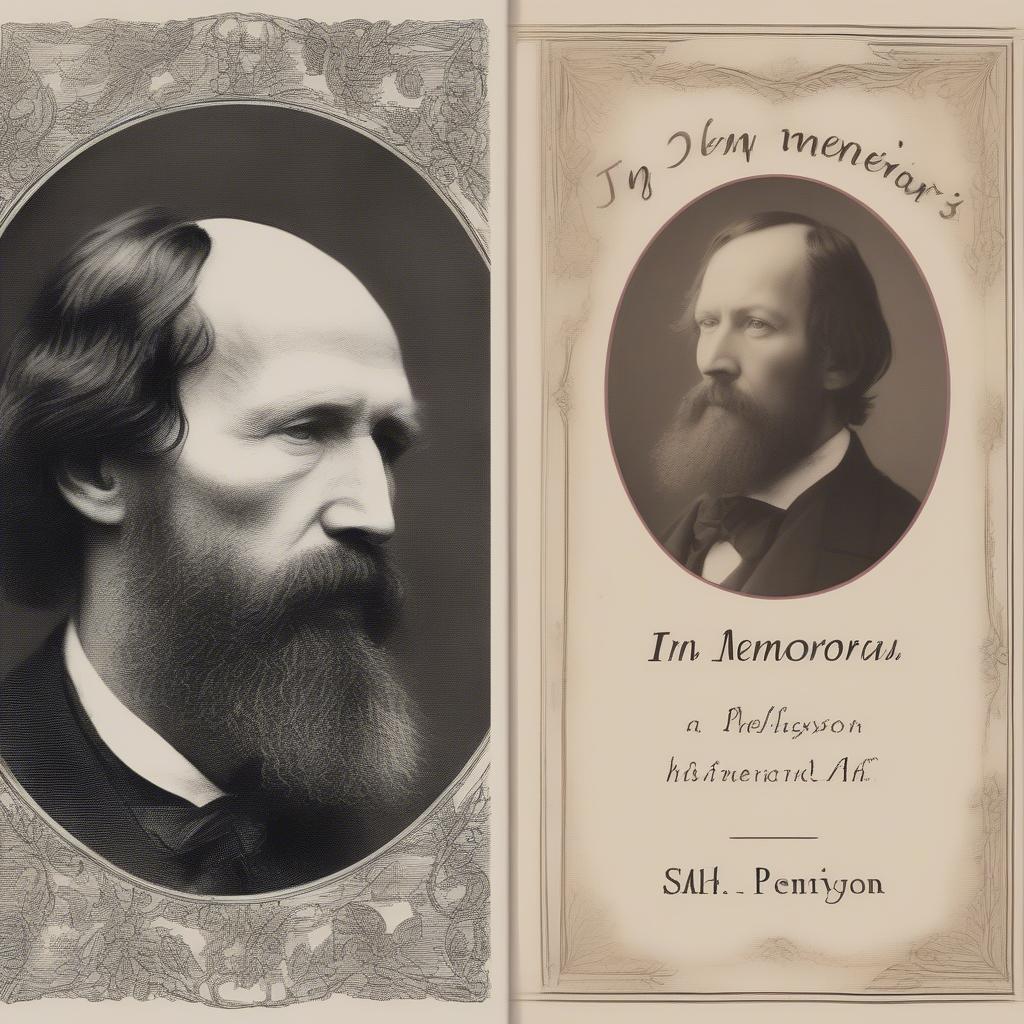The age-old adage, “better to have loved and lost than never to have loved at all” resonates with many, evoking a bittersweet understanding of love’s complexities. But Who Said Better To Have Loved And Lost? This exploration delves into the quote’s origins, meaning, and enduring relevance in our lives.
Unveiling the Origins of “Better to Have Loved and Lost”
The phrase “‘Tis better to have loved and lost / Than never to have loved at all” is often attributed to Alfred Lord Tennyson, specifically his poem In Memoriam A.H.H. written in 1850. This poem, a poignant elegy for his dear friend Arthur Henry Hallam, explores grief, loss, and the enduring power of love. While variations of the sentiment existed before Tennyson, his eloquent phrasing solidified its place in popular culture.
 Alfred Lord Tennyson and In Memoriam A.H.H.
Alfred Lord Tennyson and In Memoriam A.H.H.
Understanding the Meaning: Why Is It Better to Have Loved and Lost?
The quote “better to have loved and lost than never to have loved at all” speaks to the inherent value of love, even when it ends in pain. It suggests that the experience of love, with all its joys and sorrows, enriches our lives in ways that outweigh the inevitable heartbreak. Love expands our capacity for empathy, vulnerability, and connection. It teaches us about ourselves, our strengths, and our weaknesses. Even the pain of loss, while difficult, can contribute to personal growth and resilience.
The Value of Experience: Love’s Lessons Learned
Losing love can be devastating, but the experience often fosters profound self-discovery. We learn to cope with grief, develop emotional resilience, and appreciate the preciousness of human connection.
 Growth Through Heartbreak
Growth Through Heartbreak
Embracing Vulnerability: Opening Our Hearts to Love
Choosing to love requires vulnerability, a willingness to open ourselves to the possibility of pain. The quote affirms that this vulnerability, while risky, is essential for a fulfilling life. Without opening our hearts, we miss out on the profound joy and connection that love offers.
Tennyson’s Influence and the Quote’s Enduring Relevance
Tennyson’s powerful words have resonated for generations, inspiring countless works of art, literature, and music. The quote “better to have loved and lost than never to have loved at all” continues to offer solace and perspective to those grappling with heartbreak. It reminds us that love, even in its absence, leaves an indelible mark on our lives.
Modern Interpretations: Love in the 21st Century
While the core message remains timeless, the interpretation of “better to have loved and lost” evolves with changing societal norms. Today, the quote can also be seen as a call to embrace diverse forms of love, acknowledging that love doesn’t always adhere to traditional romantic ideals.
 Modern Love and its Various Forms
Modern Love and its Various Forms
Conclusion: The Enduring Power of Love
“Better to have loved and lost than never to have loved at all” is a testament to the enduring power of love. While loss brings pain, the experience of loving deeply enriches our lives in profound ways. Embracing love, with all its complexities, remains a vital part of the human experience.
FAQ
- Who originally said “better to have loved and lost”? Alfred Lord Tennyson, in his poem In Memoriam A.H.H.
- What is the meaning of “better to have loved and lost”? It means the experience of love, even if it ends in loss, is more valuable than never loving at all.
- Why is Tennyson’s quote so famous? Its eloquent expression of a universal human experience resonates deeply with people.
- How is the quote relevant today? It reminds us of the importance of vulnerability and the enduring power of love in all its forms.
- Is there a downside to loving and losing? Yes, the pain of loss is real and can be difficult, but the quote suggests the experience ultimately enriches our lives.
- What can we learn from lost love? We can learn resilience, self-awareness, and a deeper appreciation for connection.
- Does this quote apply to all types of love? Yes, it applies to romantic love, familial love, friendship, and even love for passions and pursuits.
Related Articles on DaiDuongTranhBa:
- Navigating the Stages of Grief After a Breakup
- The Power of Vulnerability in Relationships
- Building Resilience After Heartbreak
- Finding Love Again After Loss
Need further assistance? Contact us at Email: contact@daiduongtranhba.com, or visit our office at Michigan Ave, Suite 3100, Chicago, IL 60611, USA. Our customer service team is available 24/7.

